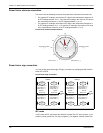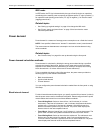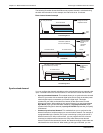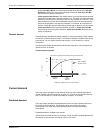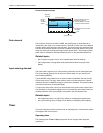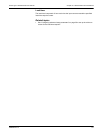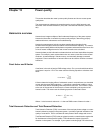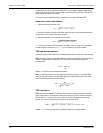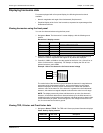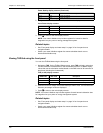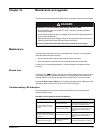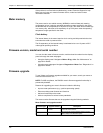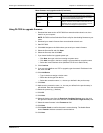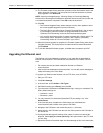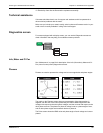
118 HRB1684301-01
Chapter 13—Power quality PowerLogic™ PM5500 series user manual
low demand, the impact of harmonic distortion on your system might be insignificant.
However at full load, the THD value for the current harmonics is equal to TDD, so this
could negatively impact your system.
The meter uses the following series of equations to calculate THD and TDD.
Harmonic content calculations
1. Calculate harmonic content (HC).
HC (harmonic content) is equal to the RMS value of all the non-fundamental harmonic
components in one phase of the power system.
2. Calculate the harmonic content for current (HCI).
HCI (harmonic content current) is equal to the RMS value of all the non-fundamental
current harmonic components (HI2…HIn) in one phase of the power system.
THD and thd calculations
The meter supports two methods of calculating total harmonic distortion: THD and thd.
THD is a quick measure of the total distortion present in a waveform and is the ratio of
harmonic content to the fundamental. The meter uses the following equation to
calculate THD:
Where H1 is equal to the fundamental harmonic.
thd is an alternate method for calculating total harmonic distortion. It uses the RMS
value for the total harmonic content rather than the fundamental content. The meter
uses the following equation to calculate thd:
TDD calculation
TDD (total demand distortion) evaluates the harmonic currents between an end user
and a power source. The harmonic values are based on a point of common coupling
(PCC), which is a common point where each user receives power from the power
source. The meter uses the following equation to calculate TDD:
Where ILoad is equal to the maximum demand load on the power system.
HC H2
2
H3
2
H4
2
++=
HCI HI2
2
HI3
2
HI4
2
++=
THD
HC
H1
-------- 100=
thd
HC
H1
2
HC
2
+
----------------------------------------- 100=
TDD HCIA
2
HCIB
2
HCIC
2
++ILoad 100=



